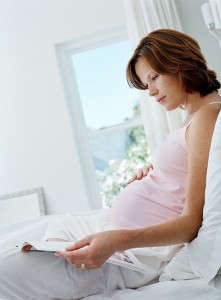 More than 10 percent of women in the U.S. struggle with infertility. For couples that want children, struggling to get pregnant and have a healthy pregnancy can be heart breaking.
More than 10 percent of women in the U.S. struggle with infertility. For couples that want children, struggling to get pregnant and have a healthy pregnancy can be heart breaking.
There are dozens of medical options to help those who struggle with infertility, but it can be difficult to ascertain which methods work best. For those who experience infertility, making evidence-based decisions is important because fertility treatments are costly and time consuming.
The Cochrane Collaboration has recently updated its sweeping overview of evidence on assisted reproductive technology. The overview is like a gigantic meta-analysis. It includes 54 separate systematic reviews that cover a variety of fertility treatments, essentially serving as a huge clearinghouse of the evidence available on assisted reproductive technology (ART).
“Each assisted reproduction cycle consists of several steps,” explain the authors. “If one of the steps is incorrectly applied, the stakes are high as conception may not occur. With this in mind, it is important that each step involved in ART is supported by good evidence from well-designed studies.”
Of the reviews included in the meta-analysis, 30 identified interventions that were effective or promising, 13 identified interventions that were ineffective or possibly ineffective, and 11 were unable to draw conclusions due to lack of evidence.
While there’s too much data to describe here, I thought I’d share a few highlights that I found interesting:
- When men with fertility problems were given oral antioxidants, couples experienced significantly more live births and clinical pregnancies.
- There was no evidence that acupuncture on women improves fertility at any time during the ovulation cycle, nor that acupuncture had any effect on pregnancy or miscarriage rates.
- The use of growth hormone for women undergoing invitro fertilization was associated with a significant improvement in live birth rates.
Other conclusions in the meta-analysis discuss the evidence about specific drugs at stages in the reproductive cycle and the pros and cons of various techniques and procedures. Overall, the document is a treasure trove of evidence for people struggling with infertility.
Pulling together large amounts of data related to a specific medical condition is a great way to weigh the various options and make truly evidence-based medical decisions.



A major cause of infertility in women is pelvic inflammatory disease. I believe if problems like that are tackled at early stage there might be no reason to use assisted conception programs. http://www.homeremediesbox.com/pid-treatment/
Nice article. But i still believe that natural means of getting pregnant is more efficient that the assisted conception programs. Here is a post that talks more on natural ways to get pregnant http://naturalhealthbag.com/natural-home-remedies-infertility-women/